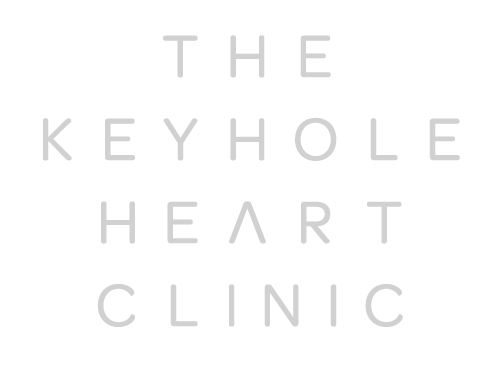Comprehensive Guide to Heart Disease: Symptoms, Prevention, and Treatments

Heart disease is a serious condition that affects millions of people worldwide. It is the leading cause of death in many countries, and it is important for individuals to understand the symptoms, risks, and prevention strategies associated with heart disease. In this article, we will explore the topic of heart disease and provide valuable information to help you stay heart-healthy.
What is heart disease?
Heart disease, also known as cardiovascular disease, refers to a range of conditions that affect the heart and blood vessels. These conditions can include coronary artery disease, heart failure, heart valve problems, and arrhythmias. The most common type of heart disease is coronary artery disease, which is caused by a buildup of plaque in the arteries that supply blood to the heart.
What are the symptoms of heart disease?
The symptoms of heart disease can vary depending on the specific condition and severity. However, there are some common signs that may indicate the presence of heart disease. These include chest pain or discomfort, shortness of breath, fatigue, dizziness, and heart palpitations. It is important to note that some people may not experience any symptoms at all, making regular check-ups and screenings essential for early detection and treatment.
What is a TAVR procedure?
TAVR, or transcatheter aortic valve replacement, is a minimally invasive procedure used to treat aortic valve stenosis, a condition in which the valve that controls blood flow from the heart’s left ventricle to the aorta becomes narrow. During a TAVR procedure, a new valve is inserted through a catheter and placed inside the damaged valve, improving blood flow and reducing symptoms.
5 tips for preventing heart disease
1. Maintain a healthy diet: Eating a diet rich in fruits, vegetables, whole grains, and lean proteins can help reduce your risk of heart disease.
2. Exercise regularly: Regular physical activity can improve heart health and reduce the risk of heart disease. Aim for at least 30 minutes of moderate exercise, such as brisk walking, five times a week.
3. Manage your stress: Chronic stress can contribute to heart disease, so finding ways to manage stress, such as yoga, meditation, or deep breathing, is important for heart health.
4. Quit smoking: Smoking is a major risk factor for heart disease. Quitting smoking can greatly reduce your risk and improve your overall health.
5. Get regular check-ups: Regular check-ups with your doctor can help detect any potential issues early on and allow for prompt treatment.
What is a CT heart scan?
A CT heart scan, also known as a coronary calcium scan, is a non-invasive test that uses X-ray technology to create detailed images of the heart and the surrounding blood vessels. This scan can help determine the presence and extent of plaque buildup in the arteries, providing valuable information for assessing the risk of heart disease.
Why choose a keyhole heart surgery?
Keyhole heart surgery, also known as minimally invasive heart surgery, is a surgical technique that uses small incisions and specialized tools to access the heart. This approach offers numerous benefits, including reduced risk of infection, shorter recovery time, and smaller scars.
5 common misconceptions about heart disease
1. Heart disease only affects older adults: While age is a risk factor for heart disease, it can affect people of all ages, including children.
2. Heart disease only affects men: Women are also at risk of heart disease, and it is the leading cause of death for women in many countries.
3. Heart disease is always accompanied by chest pain: As mentioned earlier, some people may not experience any symptoms, making regular screenings vital.
4. A healthy weight means you are not at risk: Even individuals with a healthy weight can have heart disease, so it is important to maintain a healthy lifestyle regardless.
5. Heart disease is not preventable: While there are risk factors that cannot be changed, such as age and family history, there are many lifestyle changes that can significantly reduce the risk of heart disease.
What is heart valve surgery?
Heart valve surgery is a procedure used to repair or replace damaged heart valves. This surgery can improve blood flow and reduce symptoms, such as shortness of breath and fatigue.
5 ways to reduce your risk of heart disease
1. Control your blood pressure: High blood pressure is a major risk factor for heart disease, so it is important to monitor and manage it.
2. Keep your cholesterol levels in check: High levels of cholesterol can contribute to plaque buildup in the arteries, increasing the risk of heart disease.
3. Limit alcohol consumption: Excessive alcohol consumption can lead to high blood pressure and other health issues that can increase the risk of heart disease.
4. Get enough sleep: Lack of sleep can contribute to high blood pressure and other risk factors for heart disease. Aim for 7-9 hours of sleep each night.
5. Practice good oral hygiene: Poor oral health can contribute to bacteria in the bloodstream, which can lead to inflammation and increase the risk of heart disease.
What is an echocardiogram?
An echocardiogram is a non-invasive test that uses sound waves to create images of the heart and its structures. This test can be used to evaluate the heart’s structure and function and detect any abnormalities or signs of heart disease.
5 essential heart health checks
1. Blood pressure: High blood pressure can damage the heart and increase the risk of heart disease.
2. Cholesterol levels: High levels of cholesterol can contribute to plaque buildup in the arteries, increasing the risk of heart disease.
3. Blood sugar levels: High blood sugar levels can lead to diabetes, which is a risk factor for heart disease.
4. Body mass index (BMI): A high BMI can indicate excess body weight, which is a risk factor for heart disease.
5. Family history: Knowing your family’s history of heart disease can help determine your risk and inform prevention strategies.
What is an arrhythmia?
An arrhythmia is an irregular heartbeat that can be caused by various factors, including heart disease, high blood pressure, and thyroid issues. While some arrhythmias are harmless, others can be life-threatening and require treatment.
5 factors that increase your risk of heart disease
1. Age: As we age, our risk of heart disease increases.
2. Family history: If you have a family history of heart disease, your risk may be higher.
3. Lifestyle choices: Smoking, excessive alcohol consumption, and a sedentary lifestyle can increase the risk of heart disease.
4. Medical conditions: High blood pressure, high cholesterol, and diabetes are all risk factors for heart disease.
5. Stress: Chronic stress can contribute to heart disease by increasing blood pressure and causing inflammation.
What is a pacemaker?
A pacemaker is a small, battery-operated device that is implanted under the skin to help regulate the heart’s rhythm. It can be used to treat arrhythmias and other heart conditions.
5 dietary changes for a healthier heart
1. Increase your intake of fruits and vegetables: These foods are rich in nutrients and antioxidants that can benefit heart health.
2. Choose whole grains: Whole grains contain fiber and other nutrients that can help lower cholesterol levels.
3. Limit unhealthy fats: Saturated and trans fats can increase cholesterol levels, so it is important to limit their consumption.
4. Reduce salt intake: High sodium intake can contribute to high blood pressure, so it is important to limit salt in your diet.
5. Choose lean protein sources: Lean proteins, such as fish, poultry, and legumes, are healthier alternatives to red meat, which can increase the risk of heart disease.
What is a stent?
A stent is a small, mesh tube that is inserted into a narrowed or blocked artery to improve blood flow. This procedure, known as angioplasty, is often used to treat coronary artery disease.
5 tips for managing stress and heart health
1. Exercise regularly: Physical activity can help reduce stress and improve heart health.
2. Practice relaxation techniques: Activities such as deep breathing, meditation, or yoga can help manage stress.
3. Get enough sleep: Lack of sleep can increase stress levels and contribute to heart disease risk factors.
4. Spend time with loved ones: Social support can help reduce stress and promote overall well-being.
5. Seek help if needed: If you are feeling overwhelmed or struggling with stress, do not hesitate to seek support from a therapist or counsellor.
What is an ICD?
An ICD, or implantable cardioverter-defibrillator, is a device that is implanted under the skin to monitor and regulate heart rhythm. It can deliver an electric shock to restore a normal heart rhythm in the event of a life-threatening arrhythmia.
5 exercises for a stronger heart
1. Cardiovascular exercises: Activities that get your heart rate up, such as running, cycling, or swimming, can improve heart health.
2. Strength training: Building muscle can help improve heart function and reduce the risk of heart disease.
3. Yoga: This low-impact exercise can help reduce stress, lower blood pressure, and improve heart health.
4. Tai Chi: This ancient Chinese practice incorporates gentle movements and deep breathing, which can help improve heart health and reduce stress.
5. Walking: Brisk walking is a simple and effective way to improve heart health, especially for those who are new to exercise.
What is a heart bypass surgery?
Heart bypass surgery, also known as coronary artery bypass grafting, is a procedure used to treat blocked or narrowed coronary arteries. During this surgery, a healthy blood vessel is taken from another part of the body and attached to the coronary artery to bypass the blocked or narrowed area, improving blood flow to the heart.
Conclusion
Heart disease is a serious and prevalent condition that can have a significant impact on a person’s health and quality of life. By understanding the symptoms, risks, and prevention strategies associated with heart disease, individuals can take proactive steps to maintain a healthy heart and reduce their risk. Regular check-ups, healthy lifestyle choices, and seeking prompt medical attention for any concerning symptoms are essential for maintaining heart health. With proper care and attention, we can all work towards a healthier heart and a healthier future.

